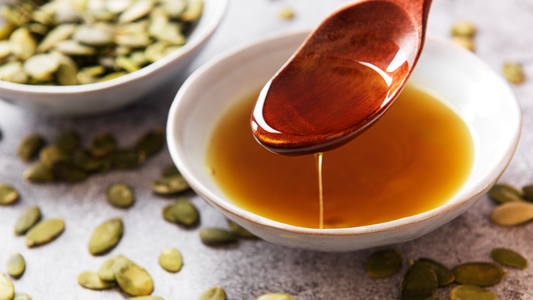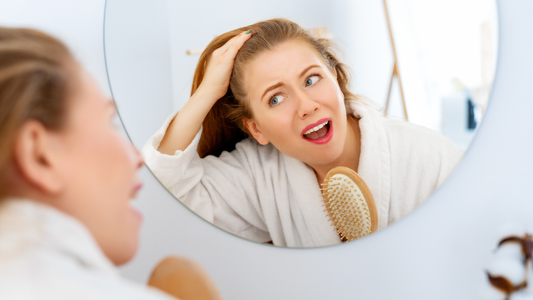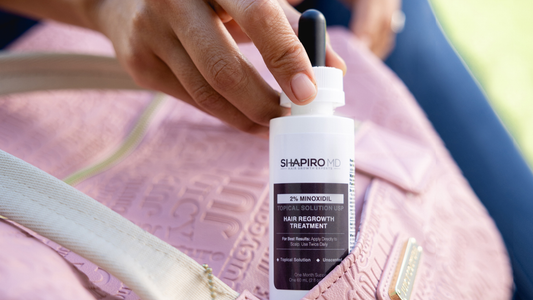If your hair is a point of pride, the idea of losing it is unthinkable. Even if your hair is just… your hair, losing it is _still _probably unthinkable.
But if you’re here, there’s probably a reason. Maybe you’ve begun to see early signs of hair loss: a receding hairline, thinning, or worse.
Hair loss is a common occurrence for millions of Americans. Fortunately, because hair loss is so common, effective treatments have been in use and development for years. And with telemedicine platforms like Shapiro MD, you can now get the most effective solutions delivered to your door with the help of a trained clinician.
Until you’re ready for real treatment, some simple prevention steps can help keep your hair healthy and full for longer. Check out these tips to prevent hair loss before it starts.
1. Up Your Protein
Protein is essential to hair composition, and a protein deficiency can contribute to hair loss in a real way. When the body isn’t getting enough protein, it hoards what it has and puts hair growth on the back burner instead of allotting protein to the process. Hair may begin falling out or thinning shortly after.
You may see this in individuals with eating disorders or with medical conditions that meaningfully restrict their diet: too little protein can contribute to thin hair.
Insure you’re getting enough healthy protein in your diet by eating plenty of fish, poultry, beef, yogurt and legumes. Vegetarians and vegans especially need to be aware of their protein intake as the elimination of meat and dairy products can make getting enough protein difficult. Healthy sources of protein that are suitable for vegetarians and vegans include nuts, tofu, lentils, oatmeal and certain grains.
2. Get Your Vitamins
Consuming the right amounts of vitamins and minerals is a key step in preventing hair loss, as many forms of hair loss have a vitamin or mineral component at their roots. Common deficiencies include:
Not Enough Vitamin A
Vitamin A is necessary for all cell growth, including hair. It also helps produce sebum, which is an important substance in maintaining healthy hair and scalp. Quality sources of vitamin A include dairy products, fish, carrots, and broccoli. Many wheat products in the U.S. are also fortified with vitamin A, so check nutritional labels to see what your food contains.
Not Enough B-Vitamins
Different vitamins in the vitamin-B complex contribute to hair growth and health, including riboflavin, vitamin B12, biotin and folic acid. Biotin and folic acid deficiencies have both been proven to cause hair loss. Those who are pregnant or may become pregnant need even more folic acid because of the role it plays in fetal development. B-vitamins can be found in meat, poultry, seafood, legumes, dairy products and various fortified grain products.
Not Enough Vitamin C
Damage from free radicals can stop normal, healthy growth of hair, but vitamin C can help protect your hair from the oxidative stress that free radicals cause. Get enough in your diet to keep your hair growing strong. Citrus fruits are excellent sources of vitamin C, as are peppers, strawberries and broccoli.
Not Enough Iron
Iron’s role in carrying oxygen throughout the body makes it important to hair growth, and iron deficiencies have been proven to cause hair loss. You can find iron naturally occurring in red meat, eggs, spinach and lentils.
Although it’s best to ingest vitamins and minerals naturally through diet, supplements may be used to reach recommended daily amounts.
3. Don’t OverDO It
Hair wasn’t meant to go through the stress that many modern beauty practices and tools cause.
Much of your everyday hairstyling is quite damaging to hair and can contribute to hair thinning and loss.
Let’s start with heat. The overuse of heat tools such as hairdryers and straighteners causes hair to become brittle and dry. The weakened hair is more likely to break and fall out. When hair is frizzy and unhealthy looking, it can be tempting to use even more heat tools to correct its appearance, but this ultimately causes even more damage.
Decrease the amount of time that your hair spends under heat by using towels specifically designed to soak up hair’s moisture before drying it; using tools that speed up heat-based processes, such as brushes that are ventilated; and letting your hair air-dry when possible. Give your hair breaks between styling with heat tools rather than every day.
Harsh chemicals are extremely harmful to hair too, especially when used frequently or not as directed. Over-processed hair is prone to breakage, and using bleach too frequently or leaving it on too long can cause hair to fall out in clumps. Hair may also have a frizzy, dry appearance when it's overtreated. Limit the frequency with which you use harsh chemicals by spreading out coloring sessions and not using bleach when it can be avoided.
4. Use the Right Brush
It’s important to treat hair gently, particularly when you’re noticing your hair get thinner or weaker. This includes brushing gently with the correct brush.
Paddle brushes are a smart option for most hair types as they can detangle quickly without causing much stress. For hair extensions and braided hair, loop brushes are best.
When hair is wet, it’s even more vulnerable to injury. Use a specially designed wet brush or a wide-tooth comb to minimize harm when working with wet hair. When drying hair with a hairdryer, shorten the time you spend under intense heat.
5. Practice Stress Management
High stress, both prolonged and incidental, can contribute to hair loss.
When you’re under stress, your hormones change. Elevated cortisol, for instance, keeps your body on edge, leading to deprioritized hair health.
Luckily, in many cases, hair loss caused by stress can be reversed with appropriate stress management. Find ways to reduce or eliminate stressors in your life and use time-management skills to keep yourself from burn-out. Learn how to manage unavoidable stress through proven tactics, including exercise, yoga, hobbies, and healthy meditation or mindfulness practices.
6. Quit Smoking
You probably know it’s time to quit. Smoking cigarettes has been demonstrably proven to contribute to hair loss, with studies showing it can more than double your chances of experiencing some degree of hair loss. The chemicals in tobacco smoke can be harmful to hair with the overproduction of free radicals caused by smoking contributing to DNA damage throughout the body and in the hair follicles.
Smoking also reduces blood flow, which means your scalp doesn’t get the necessary nutrients to produce healthy hair, and it can cause damage to the hair you already have. Hair follicles may also be scarred because of increased cytokine levels, part of the body’s natural immune response.
7. Practice Daily Scalp Massage
Daily scalp massage has been shown to improve the thickness and health of hair as well as increase hair growth by stimulating scalp blood vessels and increasing blood flow.
It not only feels good, but it can support proper hair health too.
Scalp massage can be performed on your own or by another person on dry or wet hair. Using both hands, apply comfortable pressure to the scalp with the fingertips and move in circles around the scalp, making sure to cover all areas of the head. Massage for five minutes at a time, and even repeat multiple times throughout the day.
Some people find the shower to be a good place to massage the scalp, as you can massage in shampoo and conditioner at the same time. Tools specially designed for scalp massages may be used in or out of the shower too.
8. Natural Oils and Botanical Extracts
Many people use essential oils and natural extracts to help maintain healthy hair and work against hair loss.
Among essential oils, peppermint, tea tree, and rosemary oils can all be used to promote hair growth by supporting blood flow.
Natural botanicals have been shown to help in hair loss prevention, primarily in fighting the effects of certain hormonal triggers. The hormone dihydrotestosterone is a primary cause of hair loss in men and women. Botanicals like saw palmetto and green tea can fight the effects of DHT when applied regularly to the scalp. These two extracts, plus caffeine, form the bedrock of Dr. Steven Shapiro’s original hair loss shampoo and conditioner, used by millions of people since their introduction in private practice years ago.
For whatever reason you’re concerned about hair loss in the future, the above tips can help you prevent loss before it begins in earnest. Hair loss prevention is important for another reason: it’s easier to keep the hair you’ve got than to regrow new hair.
Learn more about hair loss and browse our full suite of fullness-boosting products in the Shapiro MD Store.
References
https://www.ncbi.nlm.nih.gov/pmc/articles/PMC6380978/
https://www.health.harvard.edu/a_to_z/hair-loss-a-to-z
https://www.health.harvard.edu/blog/how-much-protein-do-you-need-every-day-201506188096
https://www.healthline.com/health/essential-oils-for-hair-growth#essential-oils




